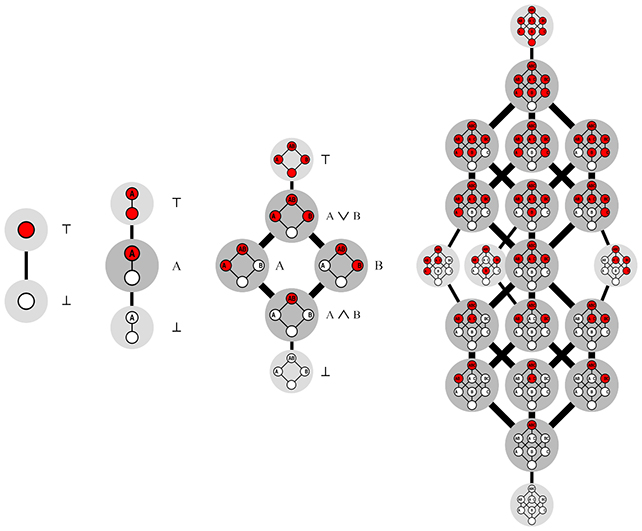
[ad_1]
Secret Dedekind number revealed: scientists have solved one of the most difficult problems in combinatorics after 32 years of searching
The process took about 10 billion hours of CPU time.
Mathematicians from the USA and Japan solved one of the most difficult problems in combinatorics – they calculated the ninth Dedekind number, which describes the number of monotonic Boolean functions from nine variables. This number is 286386577668298411128469151667598498812366 and was found using a supercomputer.
Dedekind numbers are a rapidly growing sequence of integers named after the German mathematician Richard Dedekind, who introduced them in 1897. The Dedekind number M(n) is equal to the number of monotone Boolean functions of n variables. A boolean function is a function that takes n booleans as input (that is, values that can be either false or true, or equivalently binary values that can be either 0 or 1) and outputs another boolean variable. It is called monotonic if, for any combination of inputs, switching one of the inputs from false to true can only cause the output to switch from false to true, and not vice versa.

Calculating the Dedekind numbers is a difficult task, since there is no closed formula for determining them, and the exact values are known only for n ≤ 9. The first six numbers were obtained as early as 1940, and the seventh and eighth numbers were obtained in 1988 and 1990, respectively. The ninth number has remained unknown until now.
To find it, scientists used the method of enumeration of all possible monotonic Boolean functions from nine variables using the K supercomputer. This process took about 10 billion hours of processor time and required about 500 terabytes of memory. As a result, the ninth Dedekind number was found to be 286386577668298411128469151667598498812366 (sequence A000372 in the OEIS database).
This discovery is of theoretical importance for mathematics, since Dedekind numbers are associated with such concepts as set antichains, free distribution lattices, and abstract simplicial complexes. In addition, it demonstrates the capabilities of modern computing technologies for solving complex combinatorial problems.
There is no study report yet, but it is due in September at International Seminar on Boolean Functions and their Applications (BFA), which takes place in Norway.
[ad_2]
Source link
www.securitylab.ru